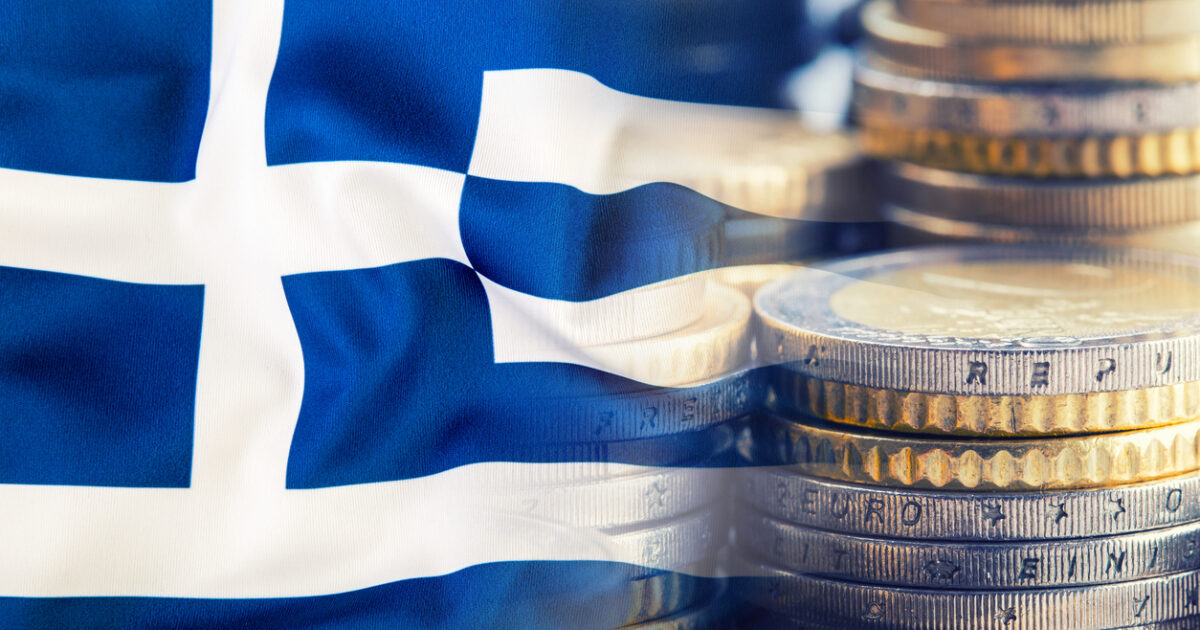‘Bell’ to slow the growth of Greek economy It is at the quarterly report of the IOBEif efforts to increase productivity are not intensified, and it is not missing to report the challenge of the tariffs internationally, while lowering its prediction for GDP growth this year.
Specifically, due to the impact of forests on the European and Greek economy, IOBE is deteriorating its prediction for the growth of 2025 at a rate of 2.2% from 2.4% previously.
The IOBE reports that Greece’s growth rates now exceeding European averages are mainly due to increased investment and employment, from particularly low levels. It warns, however, that if there is no increase in productivity, a development that presupposes essential interventions in the structure of the economy, today’s trend will inevitably become declining, as the growth in the use of productive factors gradually reaches a limit and there will be no other room for growth.
The report states that Greek is an economy in search of long -term dynamics, especially when the external environment is sharply burdened.
Despite the steps of progress in recent years, as investment gap and unemployment are reduced, the essential questions posed by the IOBE are two:
Firstis the Greek economy strong enough in the face of the turmoil of the international environment?
After all, our country’s public debt is still extremely high and there is a long distance in the investment firms in the exhibitions of investment firms until the desired evaluation enjoyed by other countries in the eurozone region.
Secondhas an inherent dynamic created that will constantly allow high growth in the coming years?
There is no significant increase in productivity yet, and a series of necessary structural changes are pending. The substantial further upgrading of our economy and its preparation for the new international environment is a big bet today.
Along with the remarkable stability achieved, the challenges in the economy remain. The current account balance is strongly negative, despite the improvement in exports of certain sectors. It is a mirror of the competitiveness of the economy, indirectly reflecting the quality of the investment base and its rules and at the same time the level of savings. Therefore, growth in the coming years will not emerge automatically, IOBE concludes.
The challenge of duties
At the same time, there is a risk of the trade war that is testing the economies.
For an economy like ours that has not yet been strengthened to the desired degree, an unfavorable European and global environment can downgrade its prospects to a lower trajectory in the medium term. The threat here is double and concerns both exports, products and services, as well as investments that are necessary to keep the economy growth.
And this is because the uncertainty that dominates the current time for the level of duties that will be applied between the various economies, as well as the impact they may have greatly freezed investment, especially the most productive and medium -term, until businesses and investors evaluate the new landscape.
The IOBE report states that the most likely is that, after an initial period of months, successive negotiations will reduce the duties announced and a new balance will be found, leading to a partial rearrangement of production in world geography.
But until that happens, it will be the uncertainty that will freeze many investments. The mixture of uncertainty, weak investment and the inevitable recession of growth caused can trigger a transient or deeper crisis in global financial markets. In this context, the European Union and within it Greece has the great challenge of co -ordinating the new trade rules, while increasing the competitiveness of our production.
